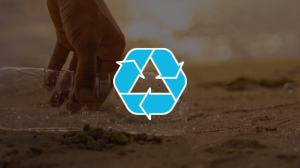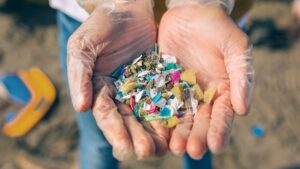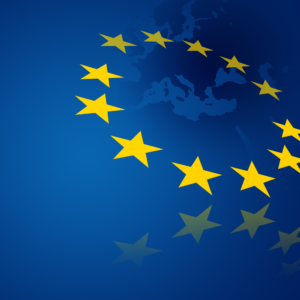Plastic pollution: treaty talks get into the nitty-gritty
French President Emmanuel Macron warns of the global plastics pollution “time bomb”
as diplomats begin talks in Paris to work towards a treaty to end plastic waste. The negotiations aim to reduce plastic production and ban the most polluting products, with the goal of reaching a historic agreement by next year. The annual production of plastics has more than doubled in 20 years, and less than 10% of it is recycled, making the need for action urgent.
Story Preview
Representatives of 175 nations with divergent ambitions met at the UNESCO headquarters with the aim of making progress towards reaching, by next year, a historic agreement covering the entire plastics life cycle.
As the talks opened, the head of the negotiations Gustavo Meza-Cuadra Velazquez said the challenge was “immense, as we are all aware here, but it is not insurmountable”
“The world’s eyes are on us,” he said.
Macron urged participating nations to put an end to today’s “globalised and unsustainable” production model, where richer countries export plastic waste to poorer ones.
“Plastic pollution is a time-bomb and at the same time already a scourge today,” he said in a video message, adding that the fossil-fuel based material posed a risk to global warming goals, as well as biodiversity and human health.
He added that the first priorities of the negotiations should be to reduce production of plastics and to ban “as soon as possible” the most polluting products like single use plastics.
The stakes are high, given that annual plastics production has more than doubled in 20 years to 460 million tonnes, and is on track to triple within four decades.
Two-thirds of this output is discarded after being used once or a few times, and winds up as waste. More than a fifth is dumped or burned illegally, and less than 10 percent is recycled.
The head of the UN Environment Programme Inger Andersen told the delegates that a throwaway plastic culture was “gushing pollution galore, choking our ecosystems, warming the climate, damaging our health” and that the most vulnerable were the hardest hit.
“Only elimination, reduction of, a full lifecycle approach, transparency and a just transition, only those can bring success because the truth is that we cannot recycle our way out of this mess,” she told delegates to loud applause.
AFP, May 29, 2023.



